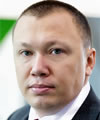 By Andrey Golovin, KONNEX Russia.
By Andrey Golovin, KONNEX Russia.
The KONNEX Russia association was established in Moscow in 2003 by Russian representatives of ABB, Gira and Siemens. In 2004 the first Russian KNX training centre was opened, and since then, more than 800 people have become KNX certified specialists. The association was first named EIB Russia. It then changed to KONNEX Russia and the intention is to change it to KNX Russia, although the procedure for doing so in Russia is rather complicated, so this may take some time!
I have been managing the association Executive Director since 2007. Before then, I worked at the Russian HVAC society for eight years. Then in 2005, I formed the Russian BACnet association (BIG-RU) which I am still managing, and in 2006 I set up the only professional journal about building automation in Russia, called ‘BMS’.
Education and Training
Having survived the financial crisis of 2009, KONNEX Russia moved its offices to the Moscow State University of Civil Engineering (MSUCE). MSUCE is the main university for the construction industry in Russia and has a special faculty for building automation, with KNX being part of the syllabus. Indeed the President of MSUCE, Professor Andrey Volkov, is a big fan of KNX and has been a great help in promoting the open protocol in Russia.
Since January 2013, the KNX training centre has been based at MSUCE, and is being managed by young scientists from the university. We believe that this approach will raise KNX education in Russia to a new level, and we are assisting MSUCE with new KNX courses.
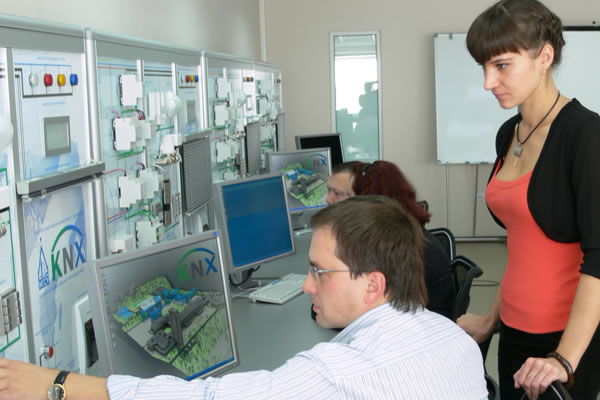
As already mentioned, we have certified more than 800 people in KNX, so if we assume that there are two specialists from each company, then we would have at least 400 KNX systems integration companies working in Russia. In practice however, many of these companies are one-off KNX integrators. By this I mean that, having won a KNX project, they decided to train in KNX, but once the project was over, they had no on-going business with KNX.
Unfortunately, this occurs all too frequently in the Russian market, so in reality, I would say that there is a core of around 50 KNX systems integration companies in Russia, most of which operate in Moscow or other cities with a population of greater than a million or so.
Winning Orders
As the association has grown, its goals and aims have changed. The main focus of the Russian KNX association is now on common promotion of KNX as the world-leading technology, and on doing our best to lobby on behalf of our members in order to win them real orders/projects.
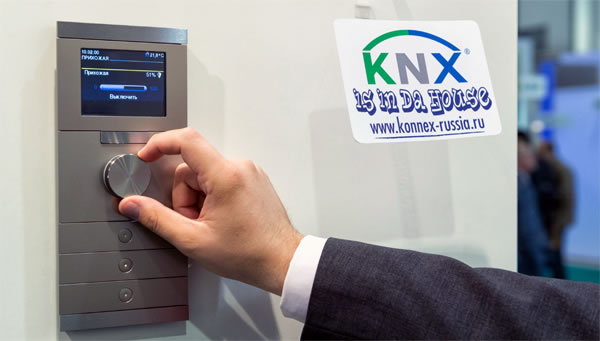
The good thing is that these days, we don’t have to convince the customer that they will need to build-in budget for an automation system, as they are already prepared for it. The only question is which system will best fit their requirements, so it is up to us to demonstrate our competence and explain to them how their building automation system should work.
Opportunities for KNX in Russia
The market structure in Russia is very complicated, and it is extremely hard to estimate its size. To date, I have seen no survey data worth relying on, as the principles that apply to European studies do not really work for Russia.
If you want an idea of what is likely to happen to the Russian building automation market, it is probably more reliable to follow the oil price. If it is more than 100 USD, the Russian construction industry, as well as the economy as a whole, feels good. Profits from oil and gas are invested in the construction industry, and as new large-scale commercial and residential projects start up, systems integrators will have more opportunities to work on KNX projects.
It is interesting to note that while KNX has traditionally been used almost exclusively for residential projects, we’ve seen a change over the past couple of years, and it is now being used more frequently in large-scale projects such as hotels, offices and public buildings. Today, planners specify KNX right at the beginning of the project, and to our delight, KNX has become the de facto standard for the Russian market.
Another potential market driver is the price of electricity. Currently, the average price per kWh of electricity to the consumer in Russia is 0.1 EUR, and each year the price increases by 10-15%. Granted, Russia is a big country and the cost of electricity can vary by region, but the overarching desire by all consumers is to save energy, and here, KNX can help.
KNX in Russia promises to be helped further thanks to a number of large-scale construction projects:
1) Post-Sochi 2014.
When the Winter Olympic Games in Sochi 2014 are over, the Russian Government intends to continue investing in the infrastructure of the south of Russia. Many hotels and other buildings will be constructed or renovated in order to make the south of Russia more interesting for internal and external tourism.
2) FIFA 2018.
The 21st World Cup Soccer tournament will be held in Russia in 2018. The football games will be hosted in 11 cities around Russia, and this will involve the construction or renovation of 12 football stadiums, including infrastructure such as hotels, airports, railway stations, etc.
3) Lakhta Center.
Since oil- and gas-giant Gazprom decided to move its company headquarters from Moscow to the Lakhta Center in the Primorsky district of St Petersburg, many other companies have expressed a desire to relocate there too. This modern business centre is currently under construction, and will support a wide range of commercial and public functions, with a transport infrastructure to match. The headquarters of Gazprom Neft and other Gazprom Group companies will be at the centre of this sustainable mini city, with other businesses and enterprises surrounding the cluster.
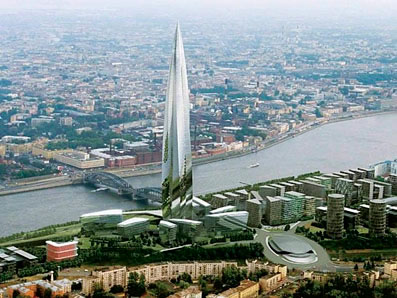
Plans for 2014
In the first quarter of 2014 we will publish the second edition of the KNX Journal in Russian, and this will include a selection of articles from several issues of the KNX International journal.
After the Light+Building show in Frankfurt, KONNEX Russia is going to organise a special informal meeting of KNX manufacturers and system integrators where they can see new KNX devices and discuss current projects. We are going to call this event ‘KNX Frühling Fest’.
In the autumn, KONNEX Russia is going to take part in two professional exhibitions in Moscow, namely Hi-Tech Building and Interlight (powered by Light+Building).
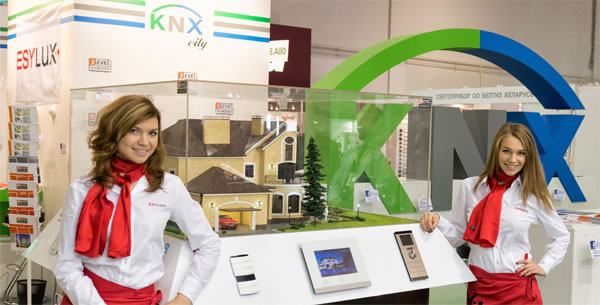
At the previous Hi-Tech Building show that took place 29-31 October in Moscow, KONNEX Russia organised a conference session entitled ‘Mobile platforms (iOs, Android) in KNX projects’. This is a popular topic for many systems integrators who work with KNX, as many of them are using various mobile solutions for home control. The conference also provided an excellent networking opportunity, and was regarded as a great success.
Among the other presentations was one from the i-Free company of St. Petersburg. This was about artificial intelligence (AI) and voice recognition for KNX projects. It showed how a KNX system can be controlled by natural speech. The AI cuts out all non-important words, analyses the core meaning of the command, and performs the action. The real-time demonstration was outstanding, and showed how AI and voice recognition can give a new level of freedom for KNX control systems. Indeed we plan to run this conference again in 2014.
Growing the Membership
KONNEX Russia is non-profit organisation with the aim of influencing the market in the direction of KNX, and making KNX better known among customers, planners and systems integrators.
We currently have 23 member companies that are split into several membership categories, namely systems integrators, KNX software developing members and an advertising membership category for companies who exhibit and non-commercial organisations.
Among KNX manufacturers we have ABB, Gira and Schneider Electric. Unfortunately Siemens has been outside of the association for past four years because, I suspect, of the company’s low level of activity within the Russian KNX market. Other KNX companies that are active in this region include JUNG, HDL and EVIKA (Embedded Systems), and I hope that they will join the association soon.
For any company working with KNX on a daily basis, being a member of the association is a must. Our members find the ability to exchange technical and commercial information really useful, and KONNEX Russia acts as a hub for this information, as well as actively helping our members with real KNX projects.
Getting in Touch
If you would like to meet us in person, we hold meetings at the MSUCE, where a special Smart City area plays host to KNX, BACnet, LonWorks, EnOcean and other industrial protocols. Indeed two years ago, the President of Russia, Vladimir Putin, visited the Smart City, and we had a chance to present KNX to him.

Our Russian-version KNX website already has more than 150 people registered for our e-shots, and people are welcome to communicate via the forum. We are also going to integrate social media such as Twitter, Facebook, Instagram etc to facilitate information exchange between KNX users.
If you are interested in joining us, please get in touch by emailing me at golovin@konnex-russia.ru or following me on twitter @golovin.
Andrey Golovin is the Executive Director of KONNEX Russia association.











